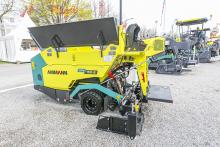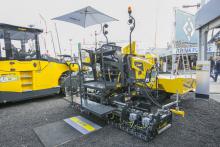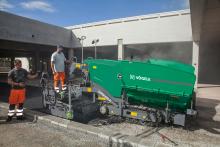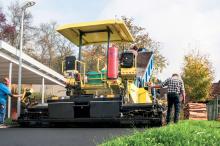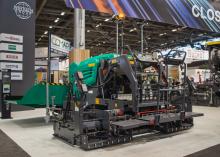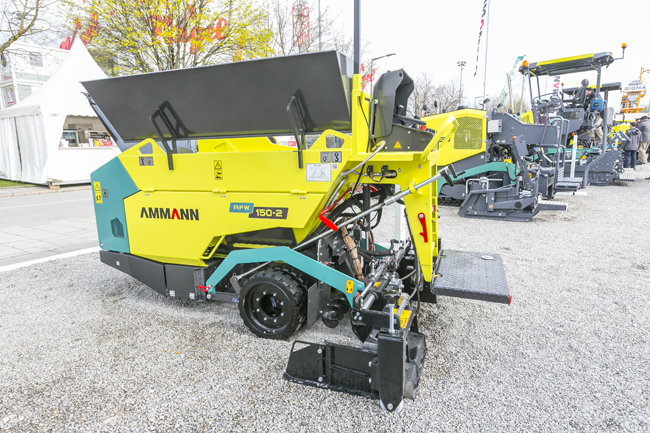
Compact asphalt pavers are versatile machines, useful for road repairs and utilities jobs, as well as paving cycle lanes, pedestrian footpaths and underground or multi-story car parks.
One of the smallest units on the market is
Moving up in scale,
The machine has a novel dual position platform, with the operator able to stand up on the deck for an all-round view of the working area, hopper and screed. Using the lower position meanwhile allows the operator to watch the screed more closely. The control column can be tilted to suit the operator’s preference.
Vögele’s compact Super 800 paver is fitted with the firm’s AB220 TV screed, which features a tamper bar and vibration. Meanwhile, the firm’s Super 700 model uses the AB 220 V screed with vibration only and is aimed at the North American market. Whether for the AB 220TV or AB 220 V variant, paving widths range from 1.2-2.2m. Bolt on extensions to the AB 220 V allow paving widths of 3.2m while bolt-on extensions for the AB 220 TV variant allow paving widths up to 3.5m.
Compact in size, the Super 800 has a track width of 1.14m, a clearance width of 1.4m and a height of 1.98m. This allows it to operate in confined spaces between obstructions as well as inside parking areas for example.
The Super 800 features a hydrostatic drive system with separate pumps that operate in closed loops. According to the firm, this allows the Super 800 precise steering and manoeuvring for working in confined areas. At the same time, the company claims that smooth running is optimised due to the crawler tracks that feature additional support rollers.
The Super 800 is equipped with a large material hopper for its overall size. The machine can hold 5.8tonnes of asphalt. This is available with an asymmetrical geometry on request, featuring a hydraulically folding upper section of the left-hand hopper side. The special design allows material to be supplied even when the feed vehicle is unable to dock on centrally in front of the paver, such as when paving alongside walls or other obstacles.
Power comes from a Deutz diesel engine rated at 55.4kW, which allows a maximum paving speed of 30m/min. A variable speed fan provides efficient cooling and is said to lower engine load, noise levels and also fuel consumption. The two models are being made available with different engine variants to suit highly regulated as well as non-regulated markets for emissions compliance.



